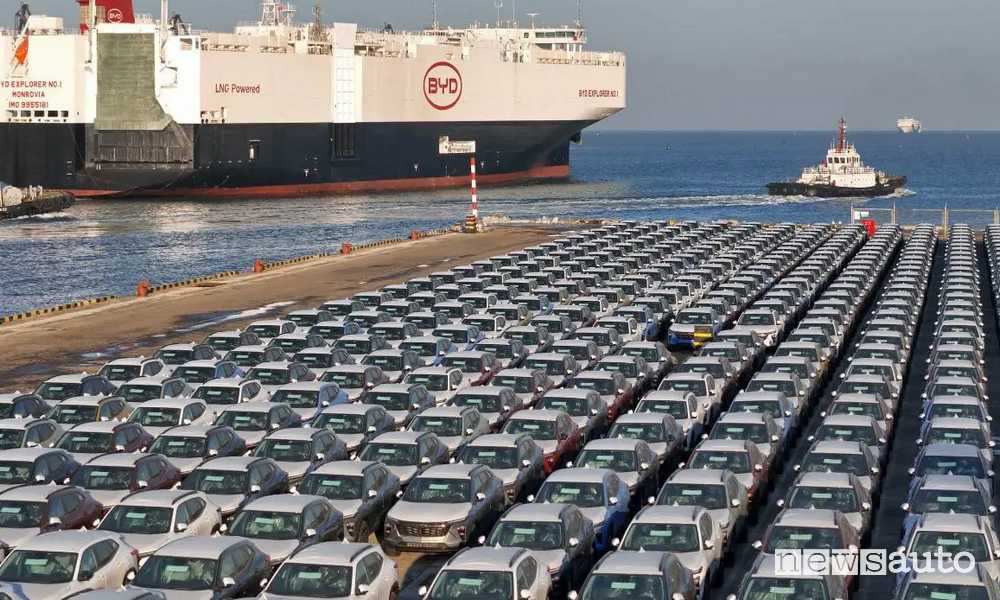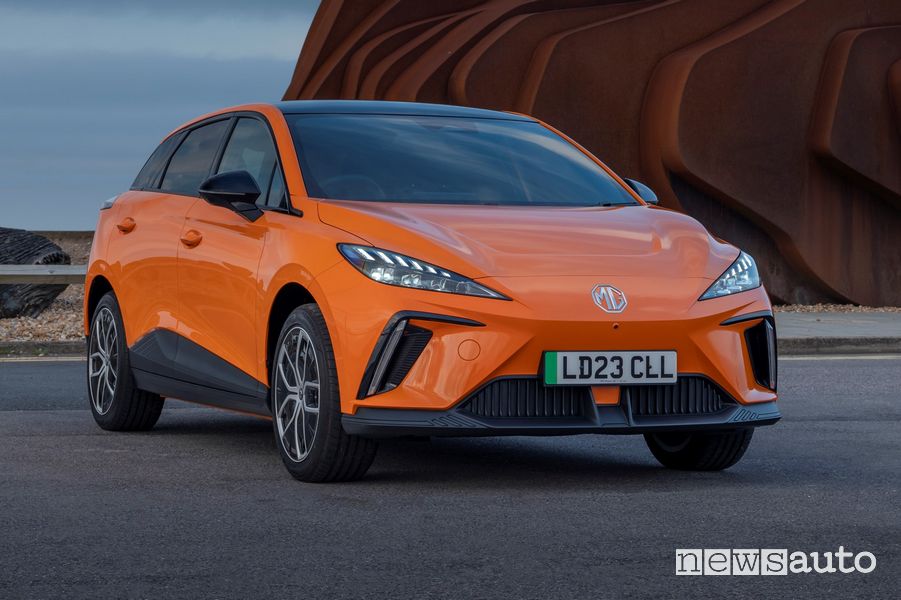The “customs duty” refers to one tax or duty applied to goods imported into or exported from a country. This tax can be calculated based on different variables, such as the value of the good, its quantity, weight or other specific characteristics. The outgoing European Commission has officially decided to raise duties on electric cars imported from China with the aim of protecting the European automotive industry by leveling the prices of highly competitive Chinese cars.
Even the same Elon Musk he is worried about the competitiveness of Chinese car prices and a few months ago he declared “We must take note that today Chinese manufacturers are among the most competitive in the world And without tariffs on cars, China will demolish the competition“.
Duties on Chinese electric cars
Duties on Chinese electric cars range from as low as 17.4% to a maximum of 38.1%, depending on the brand. Rates vary based on subsidies received from China and the degree of collaboration during the ianti-dumping investigations. Prior to this decision, cars manufactured in China and sold in Europe were subject to a tax of 10%.
The decision of European Commission follows that of March 7, 2024when the customs registration of imports of all cars from China, following the publication of the “implementing regulation” in the Official Journal.
This decision is mainly linked to theanti-dumping investigation previously announced by the EU Commission, which put i illicit subsidies from the Chinese government to car manufacturers, in violation of competition rules.
In fact, as part of the European investigation, various initiatives have been launched, including inspections at the offices in China of companies such as BYD, Geely And SAIC. In 2023, Chinese enterprises exported electric cars to the European Union worth approximately 10 billion eurosdoubling their market share to 8% compared to the previous year.
Duties since when?
Tariffs on Chinese electric cars will be applied starting from July 4, 2024but the payment period will be retroactive and will start from March 7, 2024, the day of the start of customs registrations and the publication of the regulation in the Official Journal. The models affected are those of the brands BYD (17.4% duty), Geely (20%) e SAIC (38.1%). Other builders who cooperated during the investigation but were not included in the inspections will face one 21% customs tariff. Chinese producers who did not cooperate will face a tariff of 38.1%.
The tariffs will have to be ratified by the Member States by November 2 to come into force for five years. Tesla and other companies not selected in the final sample that they produce cars in Chinathey can request an accelerated examination within 13 months from the opening of definitive measures, with a deadline of 9 months to conclude the review.

The companies in the sample received information on individual calculations and can comment on their accuracy; the Commission may revise the calculations if comments provide sufficient evidence. Any car manufacturer can appeal to have the decision reviewed. Also the Chinese government can present counterarguments and request to be heard within 10 days. The Commission will have 4 months to reach a definitive conclusions of the investigation.
Between October 2023 and January 2024 they were imported into Europe 177,839 Chinese electric carsan increase of 11% compared to the previous monthly average and 14% compared to the previous four months.
How the Chinese respond to tariffs
The Beijing Government has harshly criticized the duties, defining them “harmful” for the EU e “a typical case of protectionism” which violates the principles of the market economy and the rules of international trade, compromising economic cooperation and the stability of global automotive production. The Chinese Chamber of Commerce to the EU expressed “shock, grave disappointment and profound dissatisfaction”warning that the measure will intensify the commercial frictions between Beijing and Brussels.
The European Manufacturers’ Association Acea he acknowledged the introduction of tariffs, but stressed the importance of trade free and fair for a competitive European automotive industry. He highlighted the need for a solid industrial strategy for electromobility, which includes access to critical materials and energy at affordable pricesadequate infrastructure, and market incentives.
On the one hand there is politics and on the other the Chinese producers, who, within their expansion strategy in Europe, they have already considered the possibility of duties and have organized themselves to move their production to the Old Continent.

For example, BYD has started construction of a site in Hungarywhich will start producing the first vehicles in 2026. SAICwith MGwill transfer production to the English factory in Longbridge, where MG vehicles for the European market are already designed and designed. There Leapmotorinstead, signed an agreement with Stellantis to sell some low-cost electric models in Europe.
Germany against tariffs
There Germany is trying to lock or loosen European duties on electric cars produced in China, fearing retaliation trade by Beijing. China has threatened to take the issue to the World Trade Organization and enforce equivalent duties on European products. Berlin, under pressure from its automotive giants, hopes to reach an agreement with China by July 4th, the date of entry into force of the duties. The German Minister of Economy, Robert Habeckwill visit China to discuss the tariff issue with officials in Beijing.
100% duties in the USA
In the USA tariffs on electric cars are set to reach 100%. Joe Bidenin the midst of the election campaign, announced that the tariff rate on electric vehicles is destined to quadruple by 2024, while the one on semiconductors will pass from 25 to 50% by 2025. The goal is to encourage China to “eliminate its unfair trade practices.”
In addition to electric vehicles, Washington will triple tariffs on some steel and aluminum products lithium ion batteries for electric vehicles and their parts. The duty on natural graphite and on some other critical minerals it will go from zero to 25%, while that on solar cells will double to 50%. Some increases, such as those on non-electric vehicle lithium-ion batteries, they will come into force later to ensure a transition period while the country builds its domestic battery production.
Late choice
The Chinese phenomenon has therefore already widely exploded and the tariff policy appears late, especially considering the European Commission’s decision to ban the sale of vehicles with internal combustion engines from 2035, without fully evaluating the economic consequences. This leads Europe to give up a technology in which it was a leader, while the Chinese have a significant advantage.
Problems with the export of cars produced in Europe to China?
Could the increase in duties have any consequences on the export of cars produced in Europe to China? Approximately 5 million European carswith Volkswagen, BMW and Mercedes among the main European manufacturers.

It is also true that Europe cannot ignore China at the moment, especially when it comes to rare earths and raw materials, and that it will have to deal with it: the presence of the Dragon can no longer be avoided, but only managed.
→ What do you think? Drop by discussions on the FORUM!
#Increase #duties #Chinese #electric #cars #prices #rise